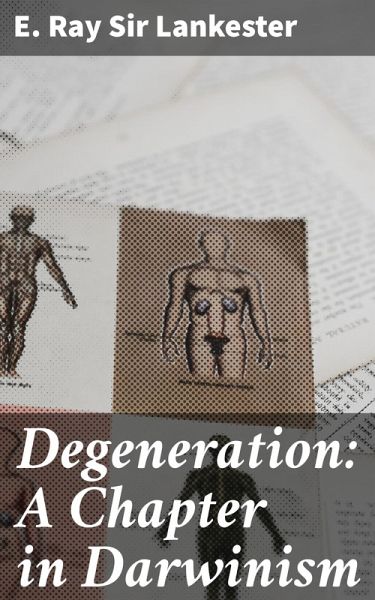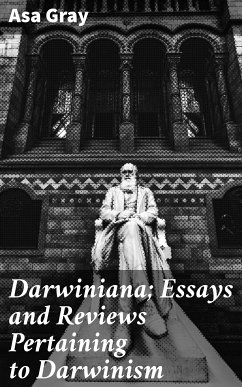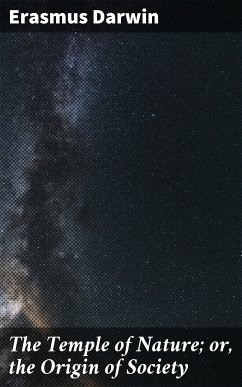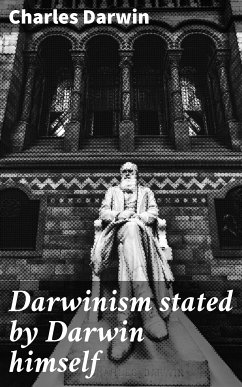
Degeneration: A Chapter in Darwinism (eBook, ePUB)
Enriched edition. Exploring Species Devolution in Evolutionary Theory
Kommentar: Fawcett, Megan / Redaktion: Good Press

PAYBACK Punkte
0 °P sammeln!
In "Degeneration: A Chapter in Darwinism," Sir E. Ray Lankester explores the darker facets of evolutionary theory, particularly the phenomenon of degeneration as it pertains to species' adaptability. Lankester's prose marries scientific rigor with literary elegance, encapsulating complex ideas in an engaging manner. By situating degeneration within the broader framework of Darwinian thought, he reflects on its implications for biological and social evolution, addressing concepts including atavism and the interplay of environment and hereditary traits. This work is situated at the confluence of...
In "Degeneration: A Chapter in Darwinism," Sir E. Ray Lankester explores the darker facets of evolutionary theory, particularly the phenomenon of degeneration as it pertains to species' adaptability. Lankester's prose marries scientific rigor with literary elegance, encapsulating complex ideas in an engaging manner. By situating degeneration within the broader framework of Darwinian thought, he reflects on its implications for biological and social evolution, addressing concepts including atavism and the interplay of environment and hereditary traits. This work is situated at the confluence of Victorian science and a growing interest in sociobiology, offering readers a thought-provoking examination of evolution's dualistic nature'-creation and decay. E. Ray Lankester was a prominent British zoologist and a staunch supporter of Darwin's theories. His diverse academic background and his engagement with contemporary evolutionary debates enriched his understanding of the nuances of degeneration. Drawing from his extensive fieldwork and deep knowledge of both zoology and philosophy, Lankester crafts a narrative that is not just a scientific treatise, but also a philosophical inquiry into the human condition. "Degeneration: A Chapter in Darwinism" is an essential read for anyone interested in the intersections of evolutionary biology and social theory. Lankester's insights challenge readers to reconsider the implications of Darwinism in a modern context, making this book invaluable for both students and scholars seeking a deeper understanding of the complexities of life's evolutionary pathways. In this enriched edition, we have carefully created added value for your reading experience: - A succinct Introduction situates the work's timeless appeal and themes. - The Synopsis outlines the central plot, highlighting key developments without spoiling critical twists. - A detailed Historical Context immerses you in the era's events and influences that shaped the writing. - A thorough Analysis dissects symbols, motifs, and character arcs to unearth underlying meanings. - Reflection questions prompt you to engage personally with the work's messages, connecting them to modern life. - Hand-picked Memorable Quotes shine a spotlight on moments of literary brilliance. - Interactive footnotes clarify unusual references, historical allusions, and archaic phrases for an effortless, more informed read.
Dieser Download kann aus rechtlichen Gründen nur mit Rechnungsadresse in A, B, BG, CY, CZ, D, DK, EW, E, FIN, F, GR, H, IRL, I, LT, L, LR, M, NL, PL, P, R, S, SLO, SK ausgeliefert werden.













